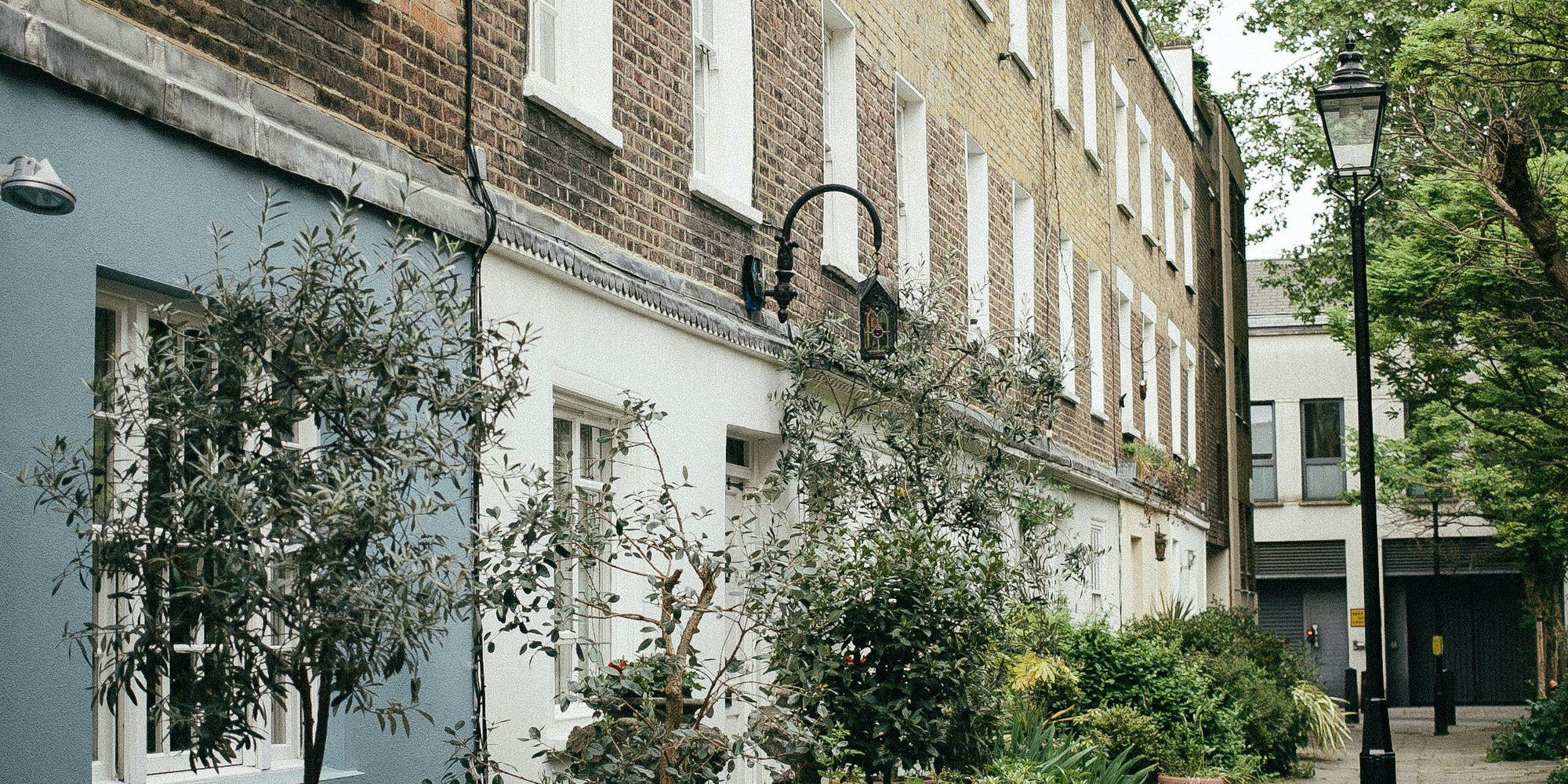
Understanding International Property Investments
Investing in international property presents an attractive venture for an array of investors. The intricacies of such investments, however, demand a comprehensive understanding of the global real estate market. This section delves into the allure of London as an international property market, and the importance of understanding property taxes when investing in real estate.
The Appeal of London as an International Property Market
London continues to be a sought-after location for international property investors, and particularly, French nationals. The city's dynamic property market, robust economy, and global status make it an appealing choice.
London's property market is renowned for its stability and consistent growth. This, coupled with the city's rich cultural heritage, diverse population, and high-quality education and healthcare systems, make it an attractive investment destination.
The strength of the pound sterling also plays a crucial role, as it often provides advantageous exchange rates for foreign investors. For instance, US clients moving funds to Spain when purchasing property or Canadian clients moving funds to Europe when investing in real estate may find their money goes further in London’s property market.
Furthermore, London's property market is renowned for its diversity, offering a range of investment opportunities from luxury apartments in prime central locations to suburban family homes.
The Role of Property Taxes in Real Estate Investments
Understanding property taxes is paramount for any successful real estate investment. Taxes can significantly impact the overall cost of an investment and ultimately the returns. Therefore, being aware of the tax implications is as crucial as understanding the property market itself.
In the context of international property investment, understanding property taxes becomes more complex. International investors need to consider not only the property taxes in their chosen location but also any potential tax liabilities in their home country. This is especially important for French nationals considering London property investment, given the specific tax implications of French nationals/citizens buying London property.
Property taxes can include purchase taxes, annual property taxes, capital gains tax on the sale of the property, and potentially inheritance taxes. The exact taxes and amounts will vary depending on the location of the property and the investor's personal circumstances.
Understanding the tax implications of property investment can help investors plan effectively, potentially save money, and avoid any unwelcome surprises. It can also highlight opportunities to maximise returns, such as taking advantage of tax treaties or specific tax rules for foreign investors.
The complexities of international property investment necessitate a thorough understanding of both the property market and the tax landscape. With the right knowledge and preparation, investors can navigate these complexities and make informed decisions that maximise their investment returns.
The London Property Tax System
Understanding the tax system is a crucial aspect of international property investment. This section will delve into the London property tax system and highlight specific tax considerations for international buyers.
Overview of Property Taxes in London
In London, property owners are generally subject to two primary taxes: Council Tax and Stamp Duty Land Tax (SDLT).
Council Tax is an annual tax levied by local authorities on residential properties. The tax amount varies depending on the property's valuation band, ranging from A (lowest) to H (highest).
Stamp Duty Land Tax (SDLT) is payable on property purchases over a certain price threshold. The SDLT rate increases incrementally in brackets, depending on the purchase price.
Price Threshold (£) SDLT Rate (%) Up to 125,000 0 125,001 - 250,000 2 250,001 - 925,000 5 925,001 - 1.5 million 10 Over 1.5 million 12
For more detailed information on the property purchase process, see our guide on property purchase process.
Specific Tax Considerations for International Buyers
For international buyers, including French nationals, additional tax implications should be considered.
Firstly, Non-Resident Landlord Scheme (NRLS) may apply. If a property owner lives abroad for more than six months in a year, they are considered a 'non-resident landlord'. Any rental income they receive may be subject to UK Income Tax, and the tenant or letting agent must deduct the tax accordingly.
Secondly, Capital Gains Tax (CGT) might be payable on the profit when selling a UK property. Non-UK residents disposing of residential UK property need to inform HMRC, even if there is no tax to pay.
Finally, Inheritance Tax (IHT) applies to an estate of a person who has died, including properties. This is charged at 40% on assets above the £325,000 threshold.
Understanding these tax considerations is crucial for international buyers, such as French nationals, when navigating the tax implications of French nationals/citizens buying London property. In the next section, we will look more closely at these considerations.
The Case of French Nationals Buying London Property
The London property market has consistently drawn international buyers, including French nationals. Let's delve into why this is the case and what the tax implications are for French citizens purchasing property in London.
Why French Nationals Are Investing in London
French nationals have a long history of investing in the London property market due to a variety of factors. London's vibrant culture, its stable political and economic environment, and the robust potential for property value appreciation make it an attractive investment hub for French nationals.
London's status as a global financial centre is another key factor. Many French nationals are employed in the financial sector and choose to invest in London property due to its proximity to their workplaces. Also, buying a property in London can be seen as a status symbol, further driving the demand among French nationals.
Lastly, the presence of French international schools in London makes it a popular choice among French families relocating to the UK. To learn more about buying property near international schools in Greater London, refer to this article.
The Tax Implications for French Citizens
Understanding the tax implications of French nationals buying London property is crucial to maximise returns and avoid unexpected liabilities. French nationals are subject to both UK and French tax laws, and understanding how these laws interact can be complex.
In the UK, property purchases are subject to Stamp Duty Land Tax (SDLT), and the rates vary based on the property value. If the property is rented out, the rental income is subject to UK income tax. In France, the property is considered part of the worldwide assets of the French national and might be subject to wealth tax if the total worldwide assets exceed a certain threshold.
Property Value (£) SDLT Rate (%) Up to 125,000 0 125,001 - 250,000 2 250,001 - 925,000 5 925,001 - 1,500,000 10 Over 1,500,000 12
When selling the property, Capital Gains Tax (CGT) might apply in both the UK and France, but the Double Taxation Agreement between the two countries allows for the offset of tax paid in one country against tax due in the other.
Understanding these tax implications is vital for French nationals investing in the London property market. It is advisable to seek professional legal and financial advice to ensure all tax obligations are met and to explore strategies to mitigate tax liability. For more details on the tax implications of international property purchases, check this article.
Navigating the Tax Implications
When it comes to international property investments, understanding the tax landscape is crucial. For French nationals buying property in London, there are key tax considerations to bear in mind as they manoeuvre through the tax implications of French nationals/citizens buying London property.
Understanding Double Taxation Agreements between France and the UK
The UK and France have a double taxation treaty in place to prevent individuals from being taxed twice on the same income. This treaty ensures that French nationals who own property in London are not doubly taxed on rental income or capital gains derived from the property.
However, understanding the nuances of this agreement requires careful navigation. For instance, while the treaty provides relief from double taxation, it does not necessarily exempt French nationals from declaring their UK property income in French tax returns. The specifics can differ based on individual circumstances, hence professional tax advice is highly recommended.
Managing Wealth Tax and Inheritance Tax
French nationals should also consider the impact of wealth tax and inheritance tax when buying property in London.
In France, the Impôt sur la fortune immobilière (IFI) or real estate wealth tax applies to residents who own worldwide property exceeding a certain value. However, the double taxation treaty may provide relief depending on the situation.
Inheritance tax is another key consideration. While the UK levies inheritance tax based on the domicile of the deceased, France charges it based on the residency of the beneficiary. Thus, it's important to plan for potential inheritance tax liabilities on both sides of the Channel.
The Impact of Brexit on French Nationals Buying London Property
Brexit has brought about significant changes in the international property landscape. For French nationals, it's important to understand how these changes affect property purchases in London.
While Brexit has not directly impacted the tax implications for French property buyers, it has the potential to influence future tax legislation. There could be changes in the way UK property owned by French nationals is taxed, both during ownership and upon sale or inheritance.
Moreover, Brexit might affect the Pound-Euro exchange rates, impacting the cost of buying and maintaining London property for French investors. Keeping an eye on currency fluctuations can help in timing property investments for maximum advantage.
Navigating the tax implications of international property purchases can be complex. It's vital for French nationals to familiarize themselves with the relevant tax laws in both the UK and France, and seek professional advice when needed. This will ensure they make informed decisions, maximising the potential returns from their London property investments. For more guidance on international property investments, explore our articles on American’s buying in London and Chinese buying in London.
Tips for Maximising Returns
When dealing with international property investments, especially with the tax implications of French nationals/citizens buying London property, it's crucial to have a clear strategy in place to maximise returns. This involves not only understanding the tax landscape but also seeking professional advice and staying abreast of changes in tax laws.
Strategies to Mitigate Tax Liability
There are several strategies that French nationals can employ to reduce their tax liability when investing in London property. These include:
- Making the most of tax allowances: The UK tax system offers a variety of allowances and reliefs that can be utilised to minimise tax obligations. This includes personal allowances, property relief, and capital gains tax allowances.
- Structuring the investment optimally: The way the investment is structured can have significant tax implications. For example, investing as an individual, a partnership, or a company each has different tax consequences, and choosing the right structure can result in tax savings.
- Using tax-efficient financing methods: Certain financing methods, such as mortgages, can be more tax-efficient than others. Understanding these methods and their tax implications can help to reduce overall tax liability.
Importance of Professional Legal and Financial Advice
Navigating the complexities of international property investments and tax law can be challenging. Therefore, it's strongly recommended that French nationals seeking to invest in London property seek the advice of professionals who understand both the French and UK tax systems.
Legal and financial advisors can provide invaluable insights into the most tax-efficient ways to structure the investment, possible tax reliefs, and obligations that might apply. They can also help with the procedural aspects of the investment, such as ensuring compliance with all relevant laws and regulations.
Keeping Up-to-Date with Changes in Tax Law
Tax laws and regulations are continually evolving, and keeping up-to-date with these changes is crucial for any investor. Any changes in the tax laws of either France or the UK could significantly impact the tax implications of owning property in London.
Investors should regularly review their investment strategy in light of any changes and adjust it as necessary to remain tax-efficient. This is another area where the services of a professional advisor can be invaluable, as they can provide timely updates and strategic advice based on the latest changes.
Maximising returns on international property investments is a complex task that requires a clear understanding of the tax implications, a well-thought-out strategy, and the right professional advice. By leveraging these elements, French investors can navigate through the London property tax maze and make the most of their investments.
For more insights on international property investments, explore our articles on tax implications of American's buying London property and Canadian nationals/citizens buying London property.




